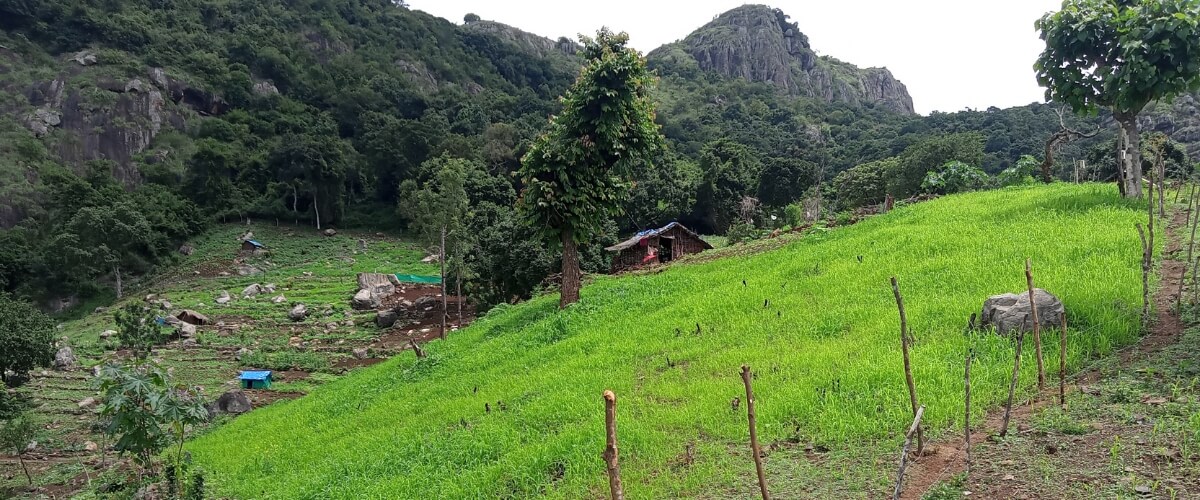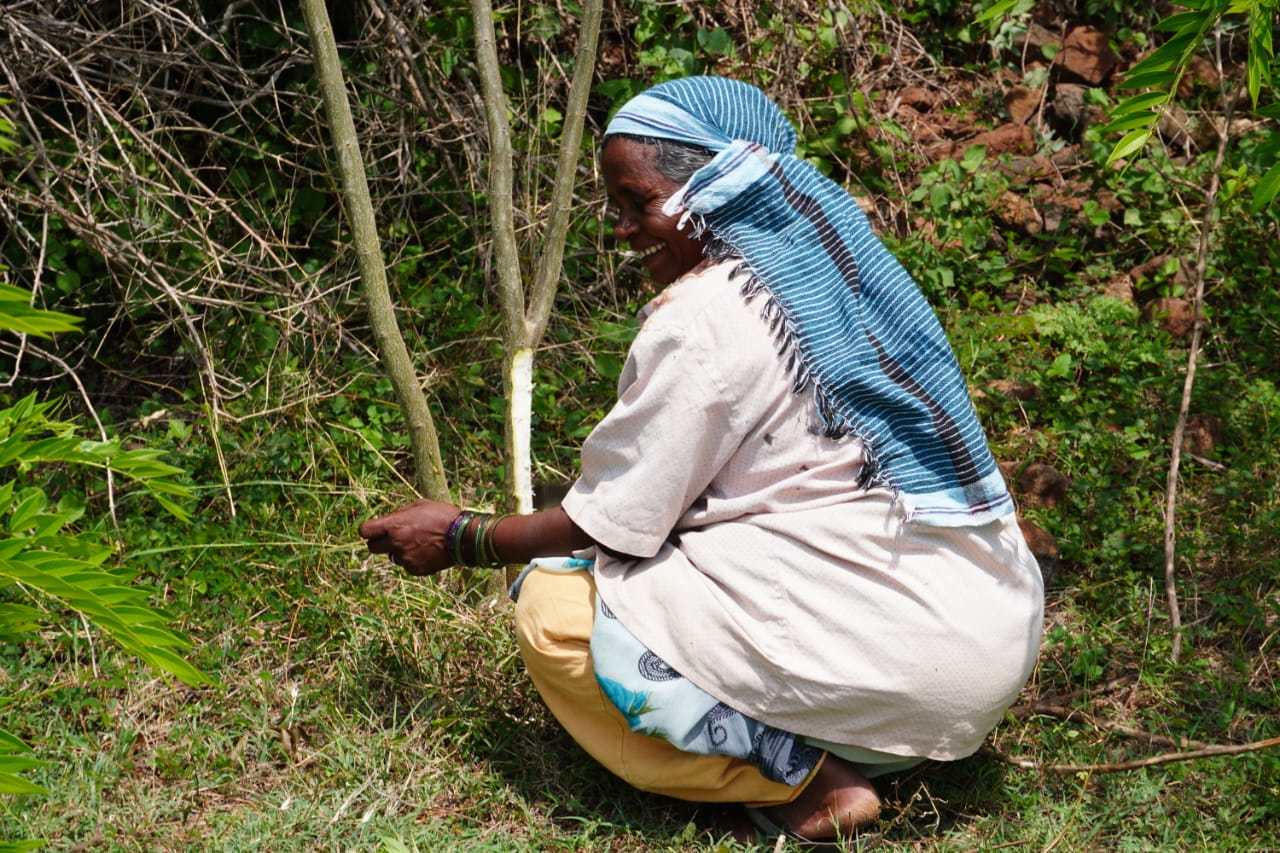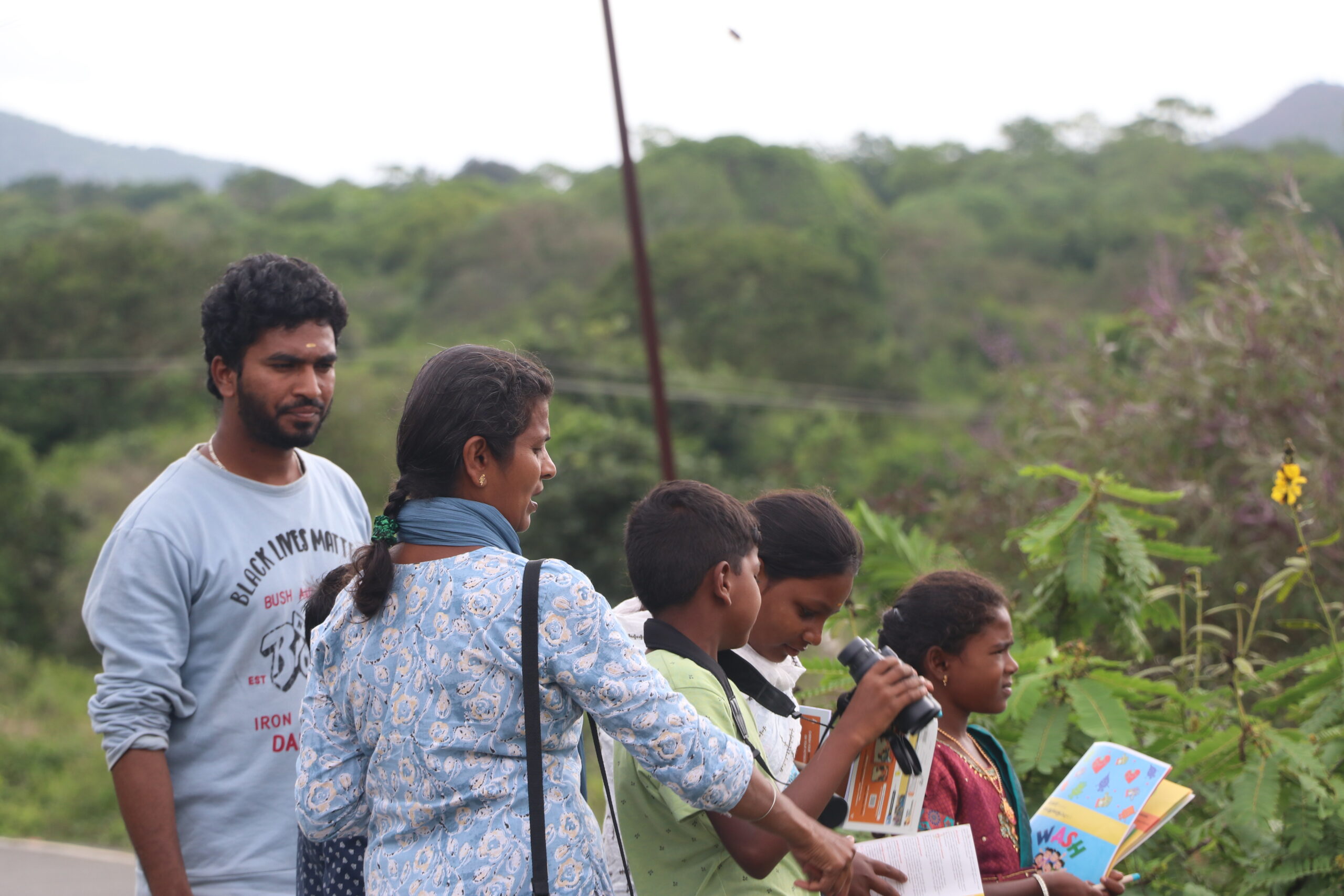The revival of millets has been the most beneficial intervention among the many that were carried out during the lockdown last year. Indigenous farmers were able to attain food self-sufficiency during times when food prices were high at the retail level due to supply disruptions.
In the region of Aracode, 63 more farmers have shown interest to grow millets during the lockdown. Each of them has cleared close to one acre of land and sown millet seeds in July 2021. Seeds were sourced from farmers who had grown millets last year. Each farmer received 3kgs of finger millet and 2kgs each of foxtail and little millets.
Timely rains have increased soil moisture which is an important factor for these rain-fed crops. Additionally, mustard, spinach, beans, peas, tomatoes, corn and onions are grown in the same land for their own consumption.
Supplying bio-inputs as an alternative to conventional pesticides
Through our community-managed nurseries, we aim to improve the availability of diverse crops that farmers can access and grow. While diversity ensures nutritional security, it also encourages the farmer to maximise land use.
From one such community-managed nursery, saplings of pepper, coffee and some fruiting trees were provided to 20 farmers in the same region. In order to improve yields while reducing costs, bio inputs were provided to the same farmers last month. Each of them has received 163 kgs of organic inputs – 3kgs each of Nitrogen, Phosphorus & Potash (NPK), and 160 kgs of Digestive Organic Supplements (DorS).
By Ritwick Charles


















